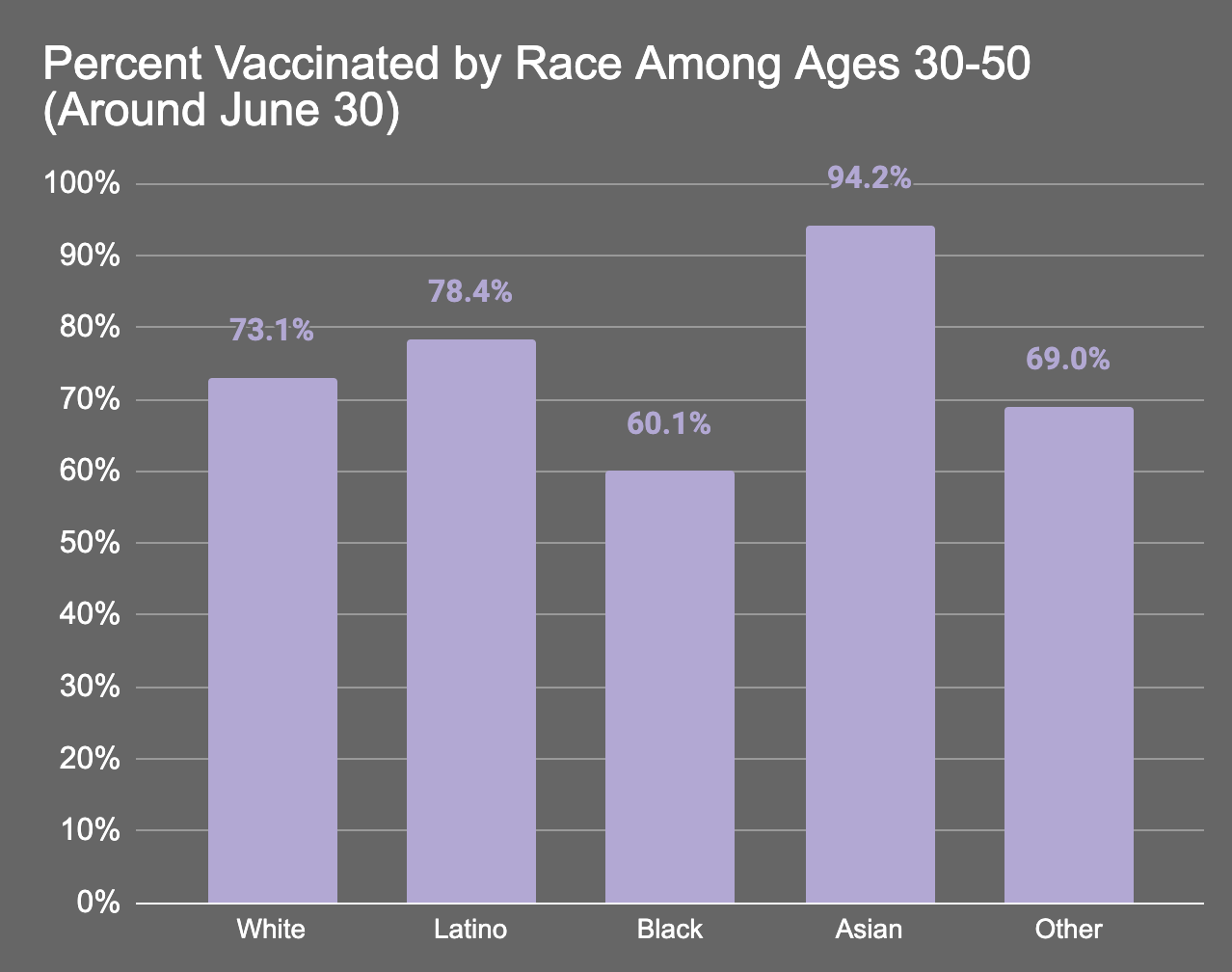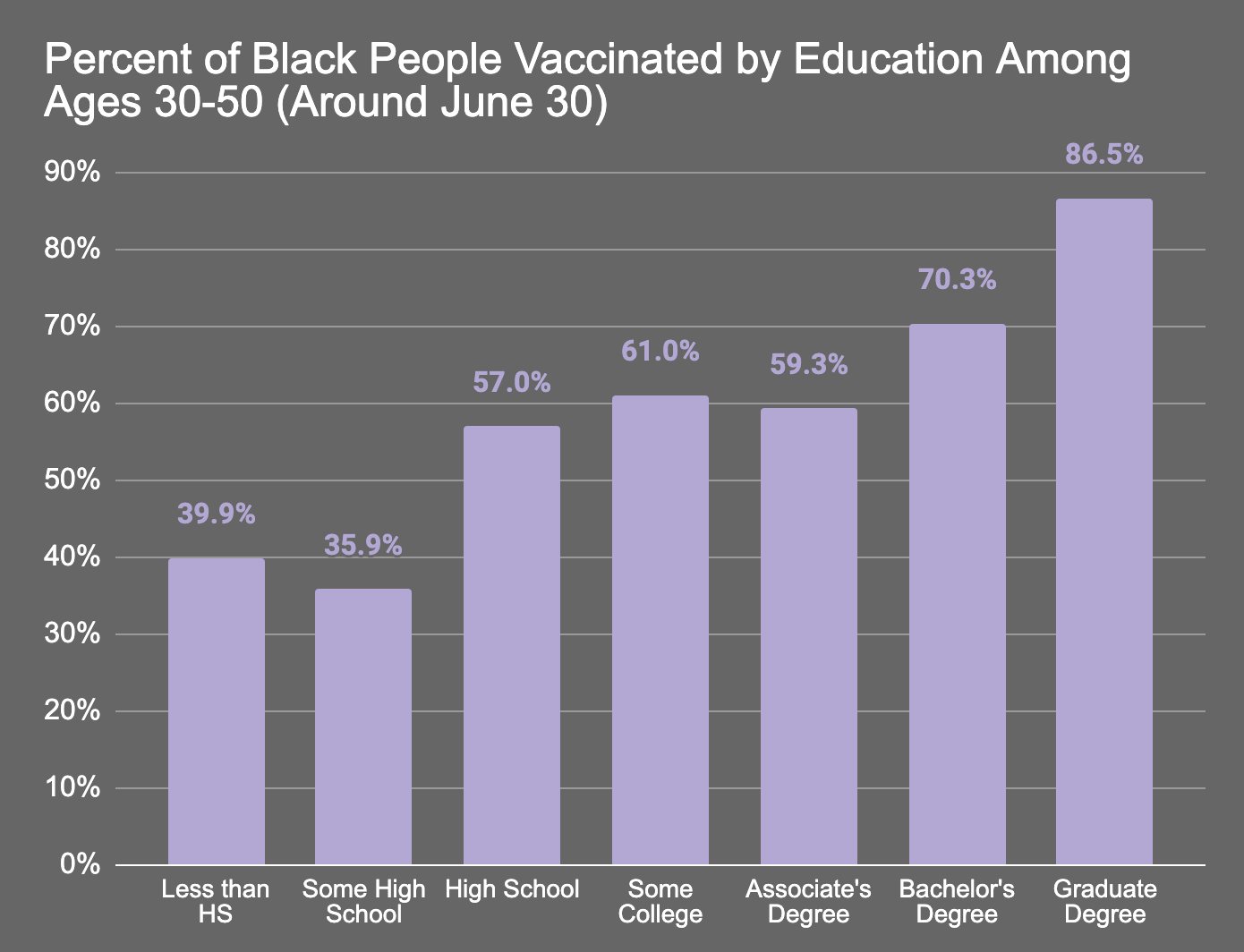By
Yves here. It is bizarre to see the press keep repeating the myth that the Tuskegee syphilis experiment is the big reason blacks are lagging other groups in vaccination. But it is also proof of how removed the press and our nominal betters are from the struggles of individuals and families at the lower end of the income spectrum.
Many people who have gotten the Covid shots are pretty ill for a half a day to two days. Many of our readers have confirmed that happens, and blown that off as if it’s no big deal. It’s not if you can’t afford to miss any shifts, or worse, might lose your job if yo call in sick.
To put it another way, “What about precarity don’t you understand?”
Perhaps I am overthinking things, but I also wonder if the Tuskegee experiment rings “Bad Bubba!” bells, which makes it even more appealing to those who want to assign blame for low vaccinations to retrograde whites. Even though the Tuskegee study was a Federal initiative, run by the United States Public Health Service and the Centers for Disease Control, it was managed by the then Tuskegee Institute, and recruited poor black sharecroppers in Alabama. In other words, even if the top brass might not have been from the South, the front line staff and immediate managers were.
Oddly, I have yet to see someone who tries assigning blame to the Tuskegee study highlight the CDC’s role, and play out a possible thought process: “The CDC was behind that atrocity. And they are headquartered in Atlanta, in the Deep South. How can we trust them?” Is it that the CDC is now “the science” and can’t be seen as responsible for past mistakes, no matter how horrific?
Matt Breunig doesn’t get into alternative explanations but simply demonstrates that the popular account doesn’t hold up to scrutiny.
By Matt Bruenig. Originally posted at his website
Black vaccination rates lag the rest of the country, according to data from the Census Household Pulse Survey and other similar sources.

One common explanation for this in the discourse is that black people are skeptical of the vaccine because of prior historical events in which they were abused and experimented upon by the US government and healthcare authorities. The main incident brought up in this explanation is the Tuskegee Experiment. In that experiment, black people with syphilis were told they were receiving drugs to treat the disease but they were actually given placebos while the researchers studied the effects of untreated syphilis.
This theory checks off certain boxes that make it resonate well within current discourse frameworks, but it doesn’t really make a lot of sense. If the coronavirus vaccines were only being given to black people, then you could see how someone might reason that it is a trick. But they are being given to everyone, including over 100 million white people. Are we meant to think that black people who aren’t getting the vaccine believe that the government is poisoning 100 million white people because the government has a racist history of poisoning black people? The racial analysis here would tell you that there is no way the white supremacist government would do such a thing and so the vaccine must be safe!
Perhaps more compelling than this abstract reasoning is the breakdown of the black vaccination rate by education level.

As with the population in general and every other racial group, black vaccination rates climb in lockstep with educational attainment. Educational attainment of course is also a decent proxy, on average, for income, wealth, and other socioeconomic indicators.
I would guess that awareness of the Tuskegee Experiment and black history more generally is greater among those with higher education than those with lower education. If this guess is right, then knowledge of historical racist medical abuses is actually strongly correlated with getting the vaccine.
One of the reasons I am bringing this up because it seems to me that this just-so story about black vaccine hesitancy is actually very unhelpful when it comes to trying to getting black people and the population more generally vaccinated. It’s soothing to a certain mindset that is prevalent in the discourse, but it’s totally detached from reality and papers over the much more significant socioeconomic factors.




